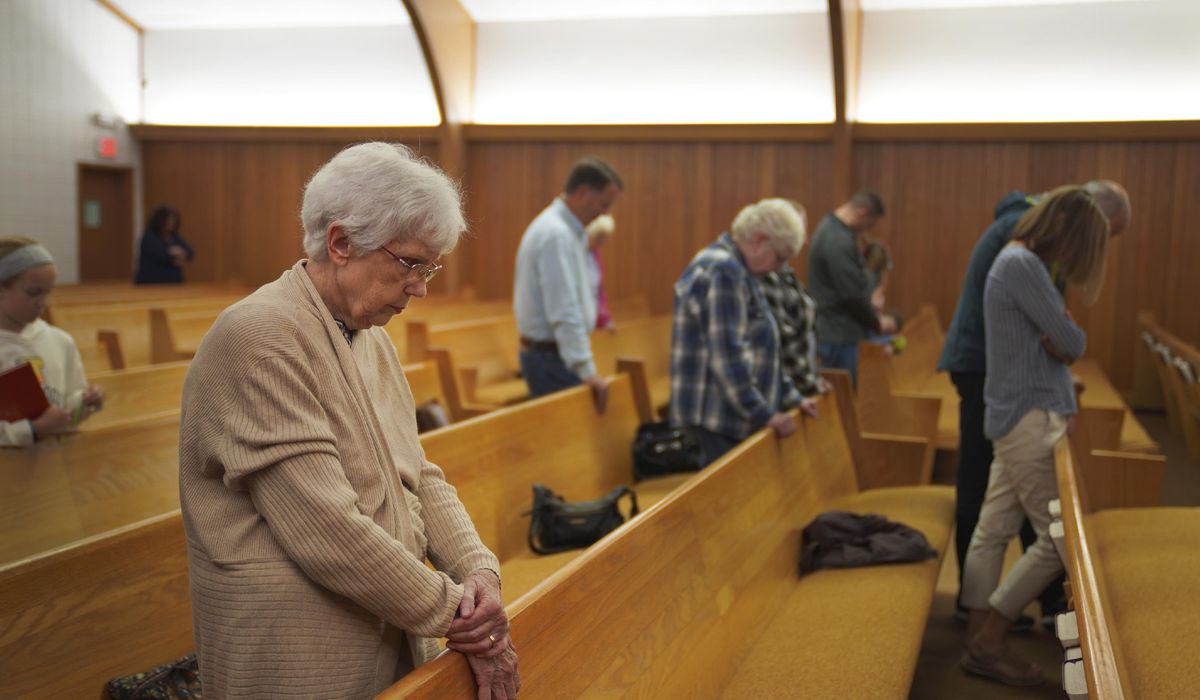


Christian churches must acknowledge their historic role in systemic racism and teach that bigotry goes beyond personal sin to unite Americans on racial issues, a panel of Protestant and Anglican theologians said.
Jonathan Tran, Sarah Coakley and Vincent Lloyd argued that many Christians fail to recognize social injustice against minorities because they assume only individual and malicious actions count as racism. The theologians participated in a lively Wednesday night discussion at the National Press Club in Washington.
Structural racism arises from 19th-century slavery, embedding the idea that non-Whites are “less than human” into institutions that have created “breathtaking inequality, domination, expropriation [and] exploitation,” said Mr. Tran, a Vietnamese American professor and associate dean at Baptist-run Baylor University in Texas.
He said “the best that the church can do at this moment is come to terms” with the reality that it is one of those institutions.
“We need to acknowledge the role of the church in America as a villain in the story of American racism,” Mr. Tran said. “And we can spend the rest of our lives doing that, and that will be a life well spent.”
Still, he said, the church is “not simply a villain” in the story because “God won’t let it be.”
U.S. congregations must learn to live with discomfort and listen better to minorities if they want to be the sign of racial unity that God calls them to be, the theologians said.
“Mutual silence is one of the most powerful, transformative, disturbing and political things you can do together without talking too much, if at all,” said Ms. Coakley, an Anglican and professor emeritus at the University of Cambridge in England.
Ms. Coakley, who is White, said theologians should rethink the biblical account of sin that has led many Christians to associate the figure of the devil with the image of a non-White person.
Mr. Lloyd, a Black Protestant who directs Africana studies at Villanova University in Pennsylvania, noted that Augustinian friars founded his Catholic campus.
He said St. Augustine of Hippo’s fifth-century books “The Confessions” and “The City of God,” two key sources in that tradition, make it clear that domination is a “part of the human condition” that operates at individual and social levels.
“To read those two together is to think about how the individual and the nation are both caught in the same dynamics, which are theological dynamics, which are about turning away from the good, the true and the beautiful,” Mr. Lloyd said.
The theologians said churches need to broaden the discussion of race beyond politicized White-Black narratives that have divided Americans in recent years.
Mr. Tran said Asian Americans often feel marginalized in White and Black conversations about racism. He said the problem calls for a more “sophisticated” discourse.
The related assumption that all Americans are either non-White victims or White supremacists who must be “shamed” into silence has stifled U.S. racial discourse since the 2020 death of George Floyd, Ms. Coakley said.
When pressed for examples of structural racism in the history of U.S. churches, the panelists mentioned segregated worship services and theological justifications for slavery.
“I think, for me, it’s really hard getting my head around what it means to think about systems and structures first with respect to racism and how we understand it, just because the prevailing paradigm of ‘I’m an individual, I have racist thoughts’ is so prevalent,” said Matthew Anderson, a Baylor moral theologian who moderated the panel discussion. “It’s such a comprehensive framework. It’s how we’re taught to think about racism, really, from childhood.”
Ms. Coakley said Christians need to overcome their unique “capacity for self-deception” about the historical role of their congregations in supporting racism before they can participate fully in the conversation.
“This capacity to say one thing and do something else is absolutely specific to this nation, in my view,” she said.
During a question-and-answer session, Mr. Tran said an unequal distribution of resources inherent to “racial capitalism” has fueled racist bias in American political and economic institutions as well.
Black Marxist scholars coined the term “racial capitalism” in the 1980s to retell the history of capitalist economic systems as a story of extracting social and economic value from racial minorities.
Mr. Tran said Christians “always imagine the racist as someone ‘out there,’” but racism more often arises from believers’ unwitting support of institutional structures that exploit minorities politically and economically.
“Very oftentimes, they don’t begin with a kind of persistent anti-Blackness,” Mr. Tran said. “It’s that participating in the system requires an anti-Black mentality to justify what’s happened.”
Mr. Lloyd said Christians could make the conversation about race more constructive and unifying by bracketing politics.
“So much of the conversation about race in the U.S. today is a political conversation,” he said. “What would it mean if it was an ethical and a spiritual conversation, or if we started there and then went to the political?”
• Sean Salai can be reached at ssalai@washingtontimes.com.
